Users Who Spiked
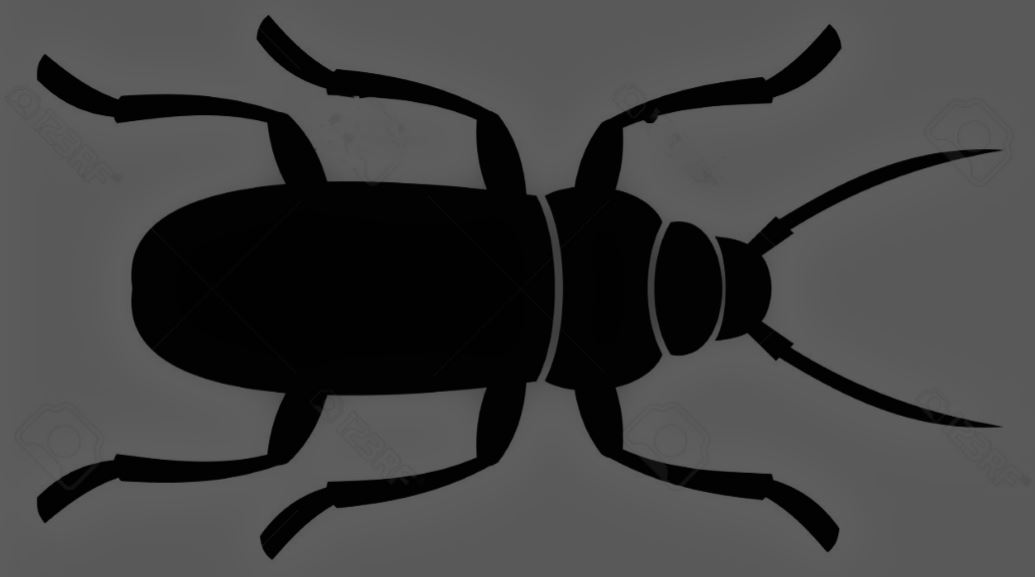
THE BLACK BEETLE
Private Notes
Private Notes
Notes
I passed the car accident on my way to the mall where I bought a plastic dinosaur collection for my daughter's birthday. Later that evening the news reported that the teenager who had been driving was killed. The next day I got the call. It would be my first solo case as a police detective. I was to speak with the coroner and gather the report from him, and I was excited and nervous about the assignment. On my way to the morgue I wondered why I was needed to investigate, as I had heard nothing to indicate that the accident warranted any investigation. In the short conversation I had on the phone with my superior, I gathered that the entire affair had been wrapped up in less than twenty minutes and that no one else on the road had been involved.
The witness to call the accident in said that Leland Danielevski drove into the concrete barrier without warning and—by his guess—without reason. Leland had not been wearing his seatbelt, and he was declared dead as soon as paramedics arrived.
The coroner was an old man; someone who had been doing this sort of thing for decades. He seemed the kind of person who would have been comfortable probing into a cold body with one hand while eating a tuna sandwich with the other—not that he would actually do so.
The coroner greeted me and led me to the morgue's refrigerator. He rolled out a metal shelf where Leland Danielevski's body lay covered by a blue blanket. He pulled the blanket back to Leland's waist, and the sight of the body shocked me. It was free from all injury except for a bruise and small incision on the right side of the abdomen.
"They told me the crash was a bad one," I said. "Parts were scattered all over the place when I passed it yesterday. Why does he look okay?"
"That's what we can't figure out," the doctor said. "I gave him the once-over. There's nothing wrong with him, externally or internally. Now, see here." He pointed at the bruise. "I saw this and thought maybe there was something wrong with his liver, so I drew a blood panel to rule out any influence of drugs or alcohol. The kid was totally clean and sober when he died."
I pointed at the incision. "And that?"
"While I was inspecting the bruise, I noticed something hard there, so I removed it." He handed me a small evidence bag. Inside the bag was a small black stone the size of my thumb, smooth and carved into the shape of a scarab beetle.
"What the hell is that?" I asked.
The doctor shrugged and warned me, "Don't let it touch your skin." He held his right hand up toward me. A pink impression in the shape of the stone beetle was burned into his palm.
I studied the beetle in its baggie for a moment, turning it over in my hands. The underside of it was carved as well. I thought the carving might be some kind of writing, but I couldn't make it out. As I stared at it, my mind began to go fuzzy as if I had been awake far too long and needed to sleep for an entire day. I looked away and the cloudy feeling left me at once. I placed the baggie in my pocket to bring to evidence later.
"Anything else you can tell me?" I asked.
"Nothing I can find on my end," he said. "It's the strangest thing. With unexplained deaths, I'm usually the one who discovers the answers. This one's on you, I guess."
I hated to disturb Leland's mother so soon after her son's death, but I needed to make sure there was nothing other than the crash that had killed her son. She was nice enough when I showed her my badge.
Mrs. Danielevski had the eyes of a zombie and the same dirty-blonde hair as Leland. She apologized that her husband wasn't home and led me up the stairs to Leland's room. She told me that she hadn't touched anything; everything in the room was how Leland had left it. The room was messy, but in a strangely organized way. Even though all his things were scattered on the floor and the bed, I had the feeling that Leland would know exactly where everything was. There were three big book cases against each wall. The books on the shelves were organized by subject and each shelf was labelled. Most of the middle book case contained texts about religion and the supernatural.
I pulled the Book of Satanic Rituals from its place and raised an eyebrow at Leland's mother.
"I let him have things like that," she explained. "They're for research, for his books. He's never practiced anything weird or evil."
I put the book back in its place beside The Necronomicon.
Many more books were piled by his bed and chair and desk. On top of the desk, a desktop computer sat next to a laptop, a small stack of papers, and a manual typewriter. There was a page resting in the carriage with one line typed on it: Gor-ry'lyehotep.
Gibberish.
"Leland liked to read a lot, huh?" I asked.
"He's addicted to books," she said, using the present tense.
"There's a little bit of everything here."
"He's interested in everything. He's a writer."
"What did he write?"
"Mostly fantasy. You know, magic and fictional worlds. The book he's working on now he says is about parallel universes and ancient gods. He has quite the imagination."
I picked up the top sheet of the stack of papers on the desk. There was one line in the center of the page: The Pink Seashell by Leland Danielevski. The rest of the stack was the story, about twenty pages in all.
"Have you read this?" I asked.
She shook her head. "Leland never lets me read his stories until he's done with them."
To my eyes the story appeared to be finished. I flipped to a random page and read a bit.
The painter cried and said, "I admit that I paid for my wish with my service, but I will not kill for you."
The smiling man said, "You have taken my seashell. You cannot refuse me. I own you from your bones to your soul."
"Then take it back," the painter said. "I will not be driven insane by your hideous commands and illusions."
"You cannot give back the shell, and you cannot break your oath," said the smiling man.
"Then I will give it to someone else," said the painter.
"The shell cannot be given away," said the smiling man. "It will harm anyone who does not serve me."
"I'll throw it away," the painter said.
"It will return to you," said the smiling man. "Once the shell has chosen you, it will always return."
"Then I will destroy it," said the painter.
The smiling man snapped his fingers and the shell disappeared. "There," said the smiling man. "Now the shell is a part of you, and you cannot destroy it without destroying yourself."
"Then I suppose I must die," said the painter, "and end this horrible servitude."
"If you die," said the smiling man, "the shell will choose another. You may die, but you have sworn an oath to me, and I own your bones and soul. And though you may rot in the ground, I can still command you to rise and do my bidding."
The story went on like this for a few pages and I skipped ahead to the end. The painter slit his wrists to end his torment and the smiling man moved on. Overall the story was strange, and I wondered about Leland's mental state before he died.
"Did Leland ever hurt himself, or talk about hurting himself?" I asked.
The mother shook her head. "He's a happy boy."
The story offered more information about Leland's mind than about the crash. I thought Leland was a talented writer, although a bit eccentric, and I set the story back in its place in front of the typewriter. For a moment I wished that my old senior partner was with me; he was always able to see something that I couldn't. But this was my first solo job, and I needed to remain confident in my own abilities. There was nothing about Leland's room that suggested he had been using drugs or anything like that. I thanked Mrs. Danielevski for her time and returned home for my daughter's birthday party.
My phone rang at 4 o'clock in the morning the day after Leland's funeral. I was needed at the Danielevski house.
When I arrived, the street was glowing with flashing red and blue lights. There were a dozen cops, an ambulance, and a hundred spectators lining the street. Mrs. Danielevski sat in the ambulance with a silver shock blanket around her as a paramedic took her blood pressure.
I asked one of the city cops what was going on. She opened her mouth to tell me, but first bent over and puked on the hood of her patrol car. She spit, wiped her mouth, and said, "Holy…I don't think I could describe it to you. God in heaven. You'll just have to go look for yourself."
I approached the ambulance and said to Mrs. Danielevski, "Ma'am? Remember me? Can you tell me what's wrong?"
The paramedic answered. "She's unresponsive. Because of the shock. We're taking her to the hospital." He frowned at me. "I haven't seen what happened, but I heard. I'm not sure if I believe it, but you'd better hurry up there yourself." He pointed to the house.
Half a dozen crime scene investigators were in the house taking pictures, dusting for prints, and putting black lights over the floors and walls. I climbed the stairs and entered Leland's room. It smelled like fresh, wet earth and rotting pork. There was a medical examiner there and two other cops, who searching the place for clues.
I looked at the bed.
"Jesus, God . . ." I said.
Leland was in his bed. His skin was flush—full of blood—like he had never been dead. His hair was a mess, sticking out in all directions and matted together with mud. He wasn't wearing shoes, but his socks were muddy and torn. A few of his fingernails were broken off and the rest had wooden splinters, blood, and dirt beneath them.
His eyes were wide open and dried up like yellow prunes. His mouth gaped and his receded grey gums made his teeth appear longer. His tongue was shriveled like jerky.
One of the cops explained, "Looks like some freak thought it would be funny to dig him up and bring him home. Some of us are thinking it was the mother." He chuckled softly.
I turned to him and asked, "Is there any evidence for that?"
"About the mother? Not that I'm aware of."
"Then let's keep the theories to a minimum, okay, officer?"
The cop nodded and returned to searching the room for clues.
The medical examiner was inspecting Leland and writing notes. I asked her, "Is he dead?"
She nodded. "As a doctor, I'll say yes. As a normal person, I'm doing my best to not admit that it looks like he walked in here by himself. I also can't explain why his eyes and tongue look so dried out. He shouldn't look like this for at least several more days. If I didn't know any better, I'd say some kind of parasite sucked the fluid out."
I looked at the desk with the typewriter. The single paper was still in the carriage, but the strange word was burned away as if someone had taken a lit cigarette and punched the letters out individually. The story about the pink seashell was also missing.
"I'm assuming arrangements have already been made to return him?" I asked the doctor.
"Yeah, I'm taking him back as soon as we sweep the place."
"I'm heading there now," I said. "Someone must have seen something."
I drove straight to the cemetery and found the grave. There were more patrol cars there, but there were no lights and the cops were acting more as guards than anything else. I passed under the yellow tape and looked down into the empty grave. It was torn up, dirt was everywhere, and the headstone was cracked down the middle between the letters I and E of his last name.
A light shined through a window in the caretaker building and I pounded on the door. When no one answered, I kicked it in. The inside of the building was a single large open room filled with landscaping tools and two small motor vehicles with trailers. The caretaker himself sat in the corner of the room hugging his knees. He mumbled under his breath.
I introduced myself, showed him my badge, and squatted next to him. "Who did this?" The man flinched at my voice and pulled his knees closer to his chest.
"Sounded like my wife," he barely whispered. "Sounded like Taylor, too. It used their voices, but it wasn't them. I knew better. And it wouldn't leave. Just kept scratching at the door . . . scratching . . ." He looked at me with horrified eyes. "I told it to go back where it came from. Told it to leave me alone. And it did. It went away. But I can still hear it." He placed his hands over his ears and shut his eyes. "Asking . . . begging . . . scratching . . ."
I couldn't get anything else out of him.
I found the smooth, black beetle in my pocket the next day. I had forgotten to give it to evidence. Actually, I had forgotten it existed. The beetle had left my mind in the same way a dream does, and I hadn't given it a single thought since the coroner gave it to me.
I held the beetle in my hand and stared at it. I felt the weight of it and tested its hardness between my fingers. It was a beautiful thing, lovely and ancient, yet timeless and horrifying as well. My mind fogged over as I stared at it, and my ears rang softly until I pulled my eyes from it and noticed that I had been holding my breath.
Did I really need to take the beetle to evidence? Did anyone need it? In all my investigating, I hadn't found any reason to believe that this small thing had anything to do with Leland's death. I felt so certain about that, and the knowledge was stronger when I held it in my fist. No one would miss it. No one knew about it except for the coroner, and he had given it to me. It was mine now, and no one else had need of it.
Something strange went off in my head, like the feeling of something bursting or a single finger tapping my brain. It came with the sound of rustling paper, or the flapping of dry wings, or dead leaves in a cold breeze. Without thinking about it, I emptied the baggie and let the black beetle drop into my hand. This whole case with Leland, and this rock from inside him, terrified me. As beautiful as it was, I never wanted to see it again.
They put Leland back in the ground that afternoon. I came at night after he was buried. I dropped the little black beetle into the dirt, and it sunk into the grave like a piece of chocolate through thick coffee. It was only after I had dropped it that I realized I had been touching it with my bare hands all day. It hadn't burned me.
I didn't know what to do when the damn thing showed up in my pocket again the next morning.
I took a hammer and swung it as hard as I could against the beetle outside on the pavement. I felt the hammer hit the beetle, but when I pulled the hammer away to admire the broken bits of black stone, the thing was gone.
The detective part of my brain tells me that the strange hard lump in my abdomen is a tumor. I want it to be a tumor, but the other part of my brain knows that it isn't. I want to believe that the voice in my head telling me to load my gun and walk into my daughter's room is a delusion, a product of stress, lack of sleep, and the shocks that have come from Leland's case. What else can I do but barricade myself from my family? What else can I do but try to hide from my own mind?
I can't shake the feeling that the sun and clouds and stars are watching me, waiting for me to come out. Something is out there on the other side of the door, and though I can't see it, I know that it's smiling.
My closet is small but I don't dare leave it. I haven't seen my family in days, but I will not open this door. My 10mm is enough company for me, and there's a bullet ready in the chamber.
Sometimes it comes to me, though it stays outside the door.
"Daddy," it says, using my daughter's voice. "I miss you. Come watch a movie. Come play dinosaurs with me."
"John," comes the voice of my wife, "I miss you. I love you."
I can't say whether or not these voices are real or whether they're just inside my head. I wish I could find out, wish that I could open the door and see if my wife and daughter are there waiting for me. What would be worse—to open the door and discover my family, only for the beetle to command me to use my gun, or to open the door and learn that the voices come from something else entirely?
I will not leave. I will die in this closet before I go out to meet whatever is there, and the last thing I will ever hear is that damned scratching . . . scratching . . . scratching at the door . . .
Comments
Please login to post comments on this story
-
This is impressive. I really like the mystery of it. I think that if you wanted, you could even extend parts of it and make it a longer story, maybe even a novella. Nice job overall!
-
I like a lot of the details in this! It really places you in the story and helps you get to know the characters.
-
Great story! Thanks for sharing!


















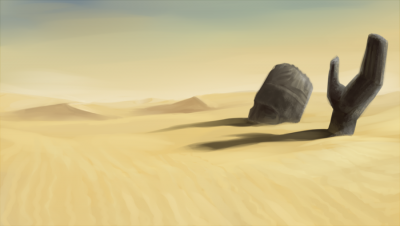
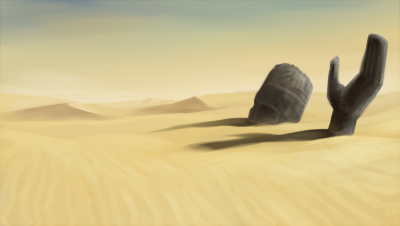
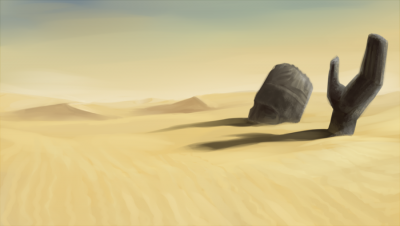
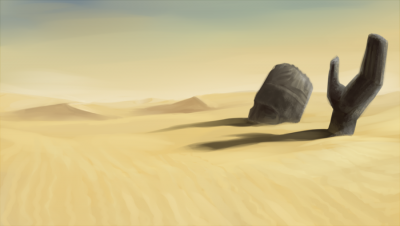
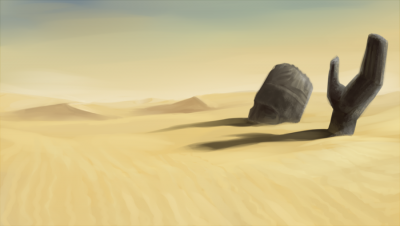
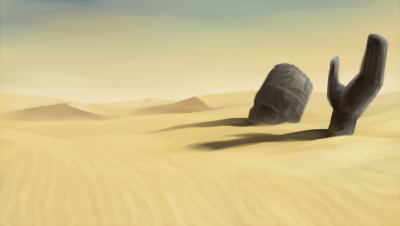
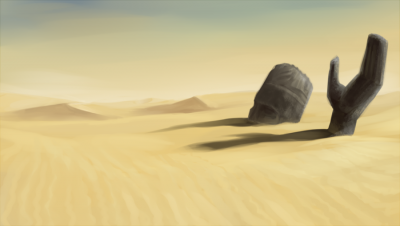
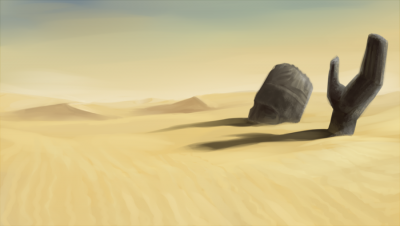
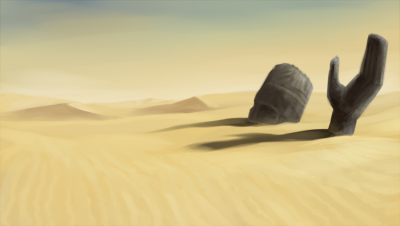
Thank you! This story actually takes place within my larger fantasy series, so the elements here will be explored in later books.